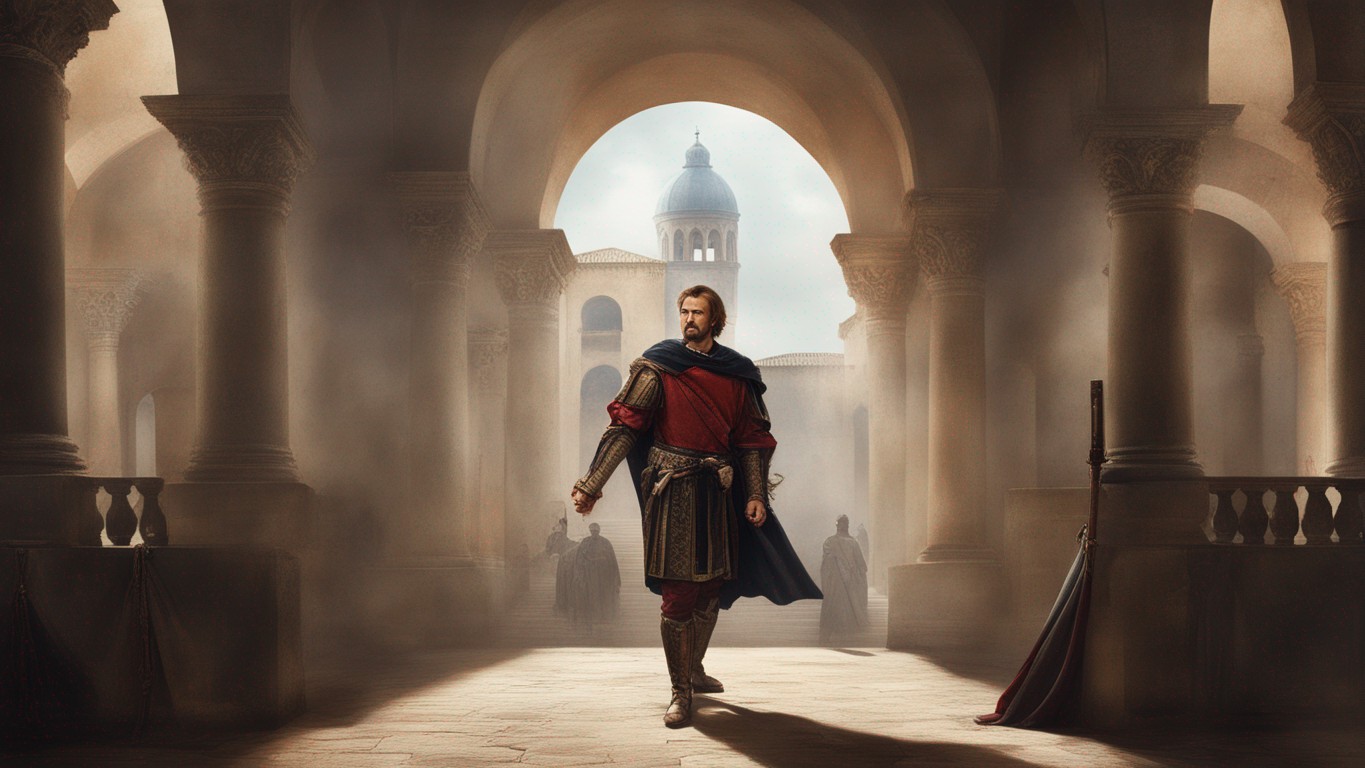Cesare Borgia, born in 1475, has carved his name into the annals of history as a cardinal, military leader, and political strategist during the Italian Renaissance. Known for his ruthless ambition and cunning tactics, he was a major inspiration for Niccolò Machiavelli’s seminal work, “The Prince.” Beyond the scholarly debate surrounding his tactics and personality, his life unfolded like a dramatic tale full of betrayal, warfare, and treachery.
Early Life and Rise to Power
Cesare Borgia was born to Cardinal Rodrigo Borgia and Vanozza dei Cattanei. His father’s ascension to the Papacy as Pope Alexander VI in 1492 dramatically altered Cesare’s life path. Initially destined for an ecclesiastical career, he suddenly found himself more attracted to the world of politics and war. His father secured for him a cardinalate at a young age, but Cesare later renounced this position to take on a military role. Historian Sarah Bradford describes Cesare as having been “molded from a young age to serve the relentless ambition of his family.”
Military Conquests and Alliances
Cesare Borgia was a strategic genius on the battlefield. Armed with the backing of the French army, he carved out a state in Romagna and the Marches. Cities like Imola, Forlì, and Pesaro fell under his control. His military tactics often included extreme measures like mass executions to instill fear and ensure obedience. Chronicles of the time, such as the Chronicle of Naples, describe him as having “a military brilliance outmatched only by his cruelty.”
Crimes and Atrocities
Cesare was infamous for his ruthless efficiency in dealing with enemies. Among his most notorious acts was the massacre at Senigallia, where he invited rival lords to a meeting under the pretext of reconciliation, only to have them executed. Moreover, he was accused of fratricide, suspected of orchestrating the murder of his own brother, Giovanni Borgia, due to jealousy over Giovanni’s military accomplishments.
The Sibling Rivalry
Cesare’s relationship with his sister, Lucrezia, was one of the most talked-about dynamics within the Borgia family. While they were close confidants, it was also said that Cesare was deeply envious of Lucrezia’s own influence and connections, particularly her close relationship with their father.
The Downfall
After the death of Pope Alexander VI in 1503, Cesare found himself vulnerable. Lacking the papal protection that had once shielded him, he was captured and imprisoned in Spain. Though he would escape, he never regained his former influence. As historian Paul Strathern notes, “Cesare’s downfall was as swift as his ascent had been meteoric.”
Legacy and Cultural Impact
While he may be viewed as a villainous character, Cesare Borgia’s life and tactics have had a lasting impact on political thought. Machiavelli’s “The Prince” immortalized him as the epitome of political cunning. Furthermore, his life has been the subject of various works of art, plays, and operas, solidifying his place in popular imagination.
The life of Cesare Borgia is a labyrinthine tapestry woven with threads of ambition, betrayal, and Machiavellian manipulation. From military conquests to political machinations, his story is a compelling study of the power dynamics that shaped the Italian Renaissance. His tragic end may be viewed as poetic justice or a heartbreaking downfall, but it is clear that Cesare Borgia has etched his name indelibly into the chronicles of history.
Sources:
Sarah Bradford, “Cesare Borgia: The Prince Reconsidered”
Chronicle of Naples
Paul Strathern, “The Artist, the Philosopher, and the Warrior”
Contemporary accounts and legal records from the Papal States
